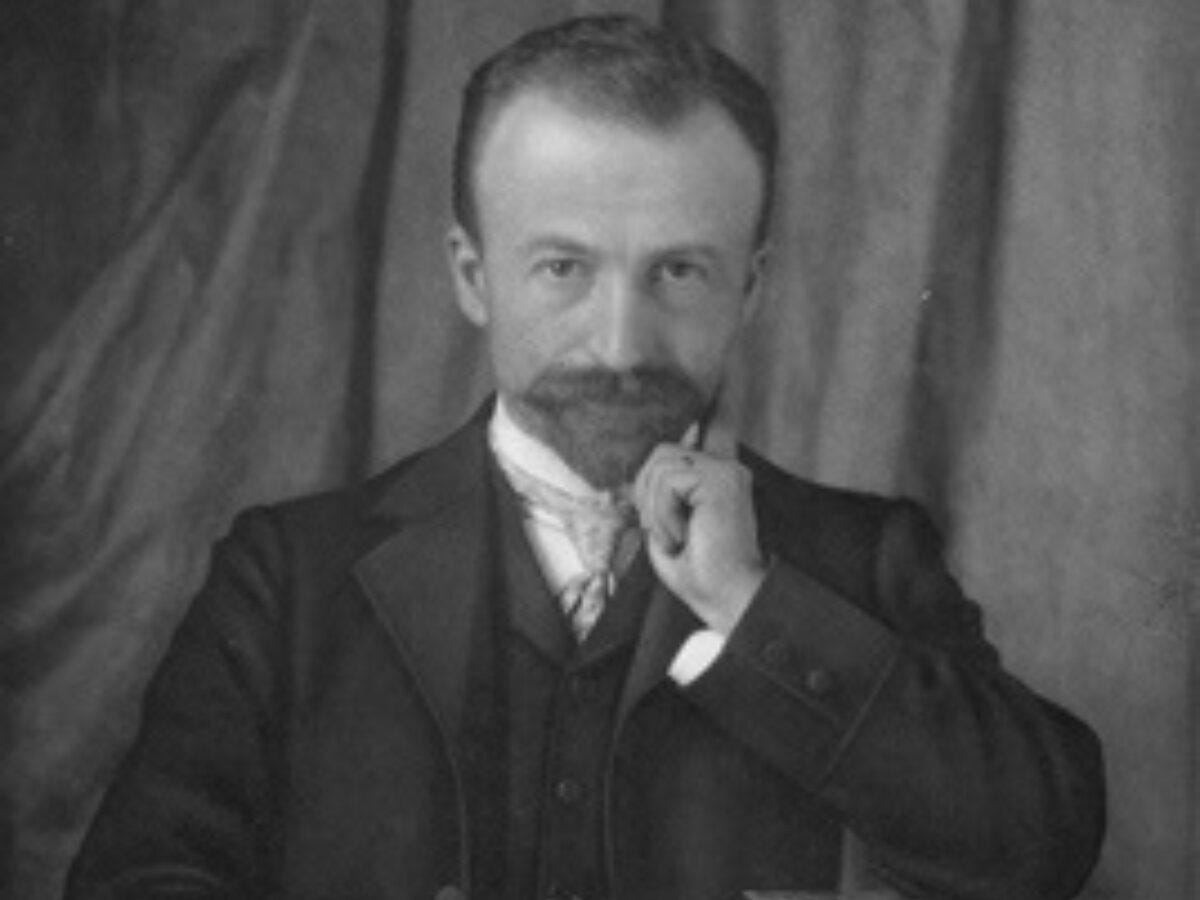A Catholic Philosopher for the Saints and the Sinners
Maurice Blondel: rejected by universities, rebuked by the Vatican, and now on the path to sainthood
First, he was accused of having Catholic views that compromised his philosophy. So, despite his high grades, he was rejected for a teaching post at one of the most prestigious French universities, the École Normale Supérieure in Paris. But Maurice Blondel (1861-1949) refused to be intimidated, and with the help of his friends, he became a professor in Aix-en-Provence. He was good. Some called him the ‘catholic Hegel’.
Then, he was accused of not being Catholic enough. By the Pope, or at least by those willing to weaponise his authority. Why? Well, he had been critical of the reduction of Catholic philosophy to 24 theses. It had become too sterile, cut off from the mess and mystery of life in action. He called it an ‘unstable equilibrium’. Philosophy, even Christian philosophy, should be more autonomous from theology. It should engage with the world as it is, not as it should be. He hoped to create space. And, protected by some bishops, he did. Thus, Blondel’s philosophy gave a new impulse to Catholic theology: Nouvelle Théologie. That was condemned too, more than once.
And yet, without the Nouvelle Théologie, the Second Vatican Council would have been impossible. By then, Blondel had already died. But, his life, spirituality, and legacy live on. With a twist. Last month, the Diocese of Aix and Arles opened the cause for the beatification of Blondel. And once again, critics of his thinking have raised the old concerns. This places him in good standing. It also happened to other great Catholic philosophers, such as Antonio Rosmini-Serbati and Thomas Aquinas. It’s not a bad start at all for a potential saint who also happened to be a philosopher. That’s the thing about Catholic philosophy, it never dies, it just goes underground until the Church is ready.
Photo: thanks to Wikicommons




